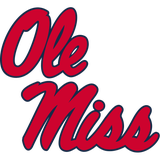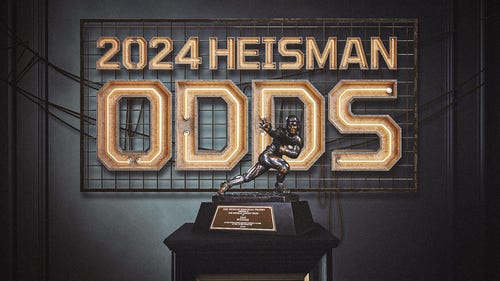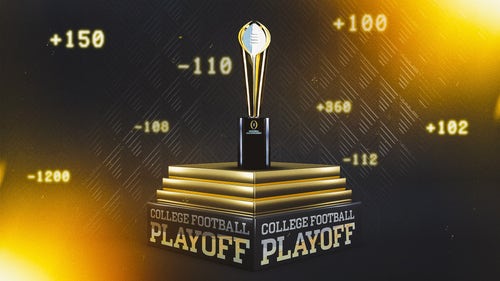
New allegations and pressure facing NCAA mean far grimmer outlook for Ole Miss
The NCAA is like that grandfather who tells a misbehaving child to go into the woods behind the house and pick out the switch that will be the instrument that delivers his discipline. The child then faces a choice. He can choose a smaller switch and pray Grandpa goes along with it. If the old man isn’t satisfied with the size, he might grab a much bigger one himself. If the kid chooses the perfect switch, it’s going to hurt. But Grandpa probably won’t add anything more. If the kid chooses too big of a switch, he’ll probably absorb more punishment than the offense deserved—and it’ll be his fault.
Ole Miss officials announced Wednesday the size of the switch they have selected for the various transgressions NCAA investigators found in their long look into the Rebels’ football program. They have self-imposed a bowl ban for the 2017 season, which they likely will argue is really a two-year ban since the 2016 team banned itself from the postseason by losing seven games. This also means Ole Miss has to forfeit $7.8 million in bowl money from the SEC, which could have come in handy to pay the two outside law firms the school has retained to shepherd the athletic department through the NCAA investigation.*

*If you read my columns often, you know I disagree with NCAA rules that cap the amount of money players can take. This system I proposed in 2011 would work far better and eliminate silliness like this. But while I may not care about the rules, the schools do. That means programs and coaches can face some very real punishments if those rules get broken. So I’ll be setting aside any disdain for the schools’ choice to collude to cap compensation for their labor market as we examine what might happen now.
Unfortunately for the Rebels, that switch may prove too small. Grandpa is under tremendous pressure from the other kids in this case. They’ve relayed the message to Grandpa—either through intermediaries or by calling him in Indianapolis—that if Ole Miss doesn’t get punished harshly, it will be a signal that everyone else should start doing what the Rebels were accused of doing. (And not only what the investigation found. The stuff that was accused but couldn’t be proven would be on the table as well.) So Grandpa is being heavily encouraged to go find a much bigger switch and swing very, very hard.
What happens next will depend on the NCAA’s Committee on Infractions, which is populated by school officials, conference officials, former university presidents, former ADs and former coaches. When USC got punished in 2010 in the Reggie Bush case, the public wanted blood for a player having the temerity to take money or goods offered to him for being good at something the market valued. It also didn’t help that USC officials weren’t as sorry as COI members wanted them to be. (There also is the matter of the entire charge against then USC assistant Todd McNair being cooked in the first place, but that keeps winding its way through the court system.) The Trojans got hammered. When Miami got punished in 2013 in the Nevin Shapiro case, the public had begun to wake up to the fact that everyone was getting rich except the players. The Hurricanes got hit with a Lack of Institutional Control finding, but the NCAA only took away three football scholarships a year for three years after considering the school’s two years of self-imposed postseason bans. A lighter penalty was fine with the public at the time.
• STAPLES: Meet the rocket scientist guiding Kansas's recruiting success
In the Ole Miss case, numbers that would have inspired tongue-clucking and pearl-clutching (from this publication in particular) 20 years ago look downright silly as the basis for a harsh penalty. Adding in the new accusations, the Ole Miss football program is accused of doling out $37,310. Rebels coach Hugh Freeze (annual salary in 2017: $4.85 million) makes more than that every three days. Last May, Ole Miss estimated it had spent $1.5 million on the investigation. That number has almost certainly risen. Current public opinion—independent of fans of the Rebels’ rivals who just want to see the program torn asunder—might consider that an awful waste to keep the cost of a fully loaded Nissan Altima out of the hands of the players.
But the public isn’t the only constituency here. Remember, the schools care deeply about their rules. That’s why they made them. Massive turnover in the enforcement department and relatively lax penalties of late have inspired some existential questions about the NCAA. If it can’t adequately enforce its rules, then what good is it? Everyone in major college athletics is watching what the Committee on Infractions does in the Ole Miss case and the North Carolina academic fraud case. If two pillars of the collegiate model—amateurism and academic integrity—can’t be upheld by the NCAA, then what happens next?

That’s why Grandpa NCAA faces so much pressure as he examines the switch Ole Miss has handed him. The outside world may rage at him if he ditches it for a branch and says “batter up.” The kids he’s charged with watching may view it as permission to run amok, and their parents may come down on him if he responds too softly. The NCAA will get shredded no matter what happens, but that should feel normal for the people in Indianapolis. They’ve been in a no-win situation for years. But given the choice between public chiding and a full-blown revolt from the membership, here’s guessing the COI sides with the membership.
What does this mean for Ole Miss? It means the future prospects for the program and the people who run it look far worse than when the NCAA initially presented the Rebels with a Notice of Allegations last year. That original notice included a hodgepodge of ticky-tack violations that certainly didn’t bode well for the Rebels, but they could have been argued around. The small switch might have sufficed. But that notice came before some contents of one of former Ole Miss offensive tackle Laremy Tunsil’s devices got released on the first night of the NFL draft last April. Instead of holding a hearing based on those accusations, the NCAA re-opened the investigation. Had Ole Miss officials been told on draft night that the expanded investigation wouldn’t find any smoking guns (or gas masks) based on the text messages released on draft night, they likely would have breathed sighs of relief. The eight new allegations don’t include anything stemming from the draft night dump, but they do suggest a deeper pattern of violations of the NCAA’s rules. They include a charge that sometime between April 2014 and February 2015, an Ole Miss staffer introduced a recruit to two boosters who provided inducements valued between $13,000 and $15,600. The recruit then chose another school and dropped the dime on the Rebels when offered immunity. The cynical among us would say Ole Miss got outbid. Those of us who have written two different guides (here’s Volume One and here’s Volume Two) to effective NCAA cheating would suggest that Ole Miss got outsmarted.

The charges also add the dreaded Lack of Institutional Control charge—bad news for athletic director Ross Bjork—and even more clearly suggest penalties, including game suspensions, could be forthcoming for Freeze. A finding of Lack of Institutional control can—but doesn’t always—wipe out the upper management of an athletic department. It can wipe out the coaching staff as well. Bjork and Ole Miss chancellor Jeff Vitter promised to fight that charge. They also intend to fight any potential punishment of Freeze under the NCAA’s relatively new head coach responsibility legislation. You’re not going to believe this, but while the Rebels are perfectly fine admitting that a player got to go hunting on a booster’s land, they will argue quite forcefully that the head coach isn’t responsible for the actions of the members of his staff.
Ole Miss has dug in and is ready to fight when it faces the Committee on Infractions at some point in the near future. The Rebels have thoroughly lawyered up. But here’s the problem. The COI doesn’t offer due process. It doesn’t need proof beyond a shadow of a doubt. It will penalize Ole Miss as it sees fit, and that penalty typically depends on the prevailing winds at the time. What’s fascinating about this case is the wind is blowing in two different directions.










